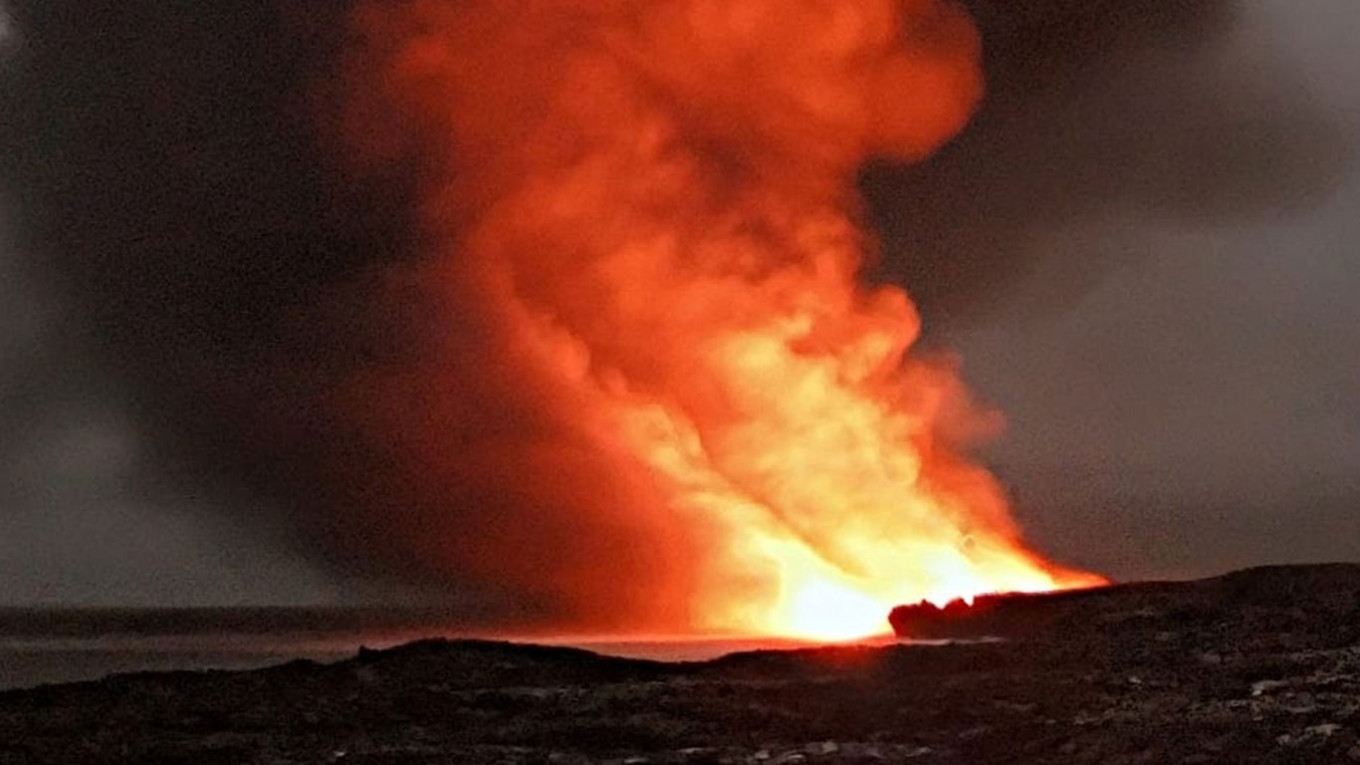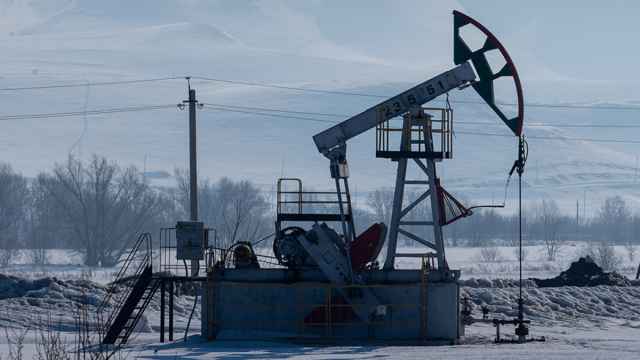Oil tanks near Russia's border with Belarus and Ukraine caught fire early Wednesday, local authorities said Wednesday.
The oil tank fires come a day after Russian regions bordering Ukraine reported one of the widest spates of shelling attacks on their territory since the start of Moscow's invasion of its western neighbor.
Bryansk region Governor Alexander Bogomaz wrote on social media that tanks with petroleum products were burning in the Surazhsky district located 10 kilometers south of Belarus and 40 kilometers north of Ukraine’s Chernihiv region.
The fire spread to an area of 4,000 square meters, the state-run TASS news agency reported, citing emergency services.
Bogomaz said the blaze was contained three hours later.
He said there were no casualties.
The fire may have been caused by an unidentified munition dropped from a drone, the pro-Kremlin Izvestia newspaper reported, citing unnamed emergency sources.
Bryansk and two other border regions, Kursk and Belgorod, were shelled later Wednesday, according to the regions’ governors.
The strikes damaged private houses in the Kursk and Belgorod regions without causing civilian casualties, they said.
Electricity supplies have been damaged in the Bryansk region village of Suzemka less than 10 kilometers east of Ukraine’s Sumy region, according to Bogomaz.
The Kursk and Belgorod regions on Tuesday reported at least three cross-border strikes on their territory.
While there were no casualties in these attacks, the regions’ governors said they caused damage to power supply facilities and at least one gas pipeline.
Kyiv has neither claimed responsibility for nor denied attacks on Russian territory.
Ukraine itself is reeling from near-daily Russian missile and drone strikes since Oct. 10 which have almost knocked out the country’s power grid and plunged millions of Ukrainians into darkness and winter cold.
A Message from The Moscow Times:
Dear readers,
We are facing unprecedented challenges. Russia's Prosecutor General's Office has designated The Moscow Times as an "undesirable" organization, criminalizing our work and putting our staff at risk of prosecution. This follows our earlier unjust labeling as a "foreign agent."
These actions are direct attempts to silence independent journalism in Russia. The authorities claim our work "discredits the decisions of the Russian leadership." We see things differently: we strive to provide accurate, unbiased reporting on Russia.
We, the journalists of The Moscow Times, refuse to be silenced. But to continue our work, we need your help.
Your support, no matter how small, makes a world of difference. If you can, please support us monthly starting from just $2. It's quick to set up, and every contribution makes a significant impact.
By supporting The Moscow Times, you're defending open, independent journalism in the face of repression. Thank you for standing with us.
Remind me later.






